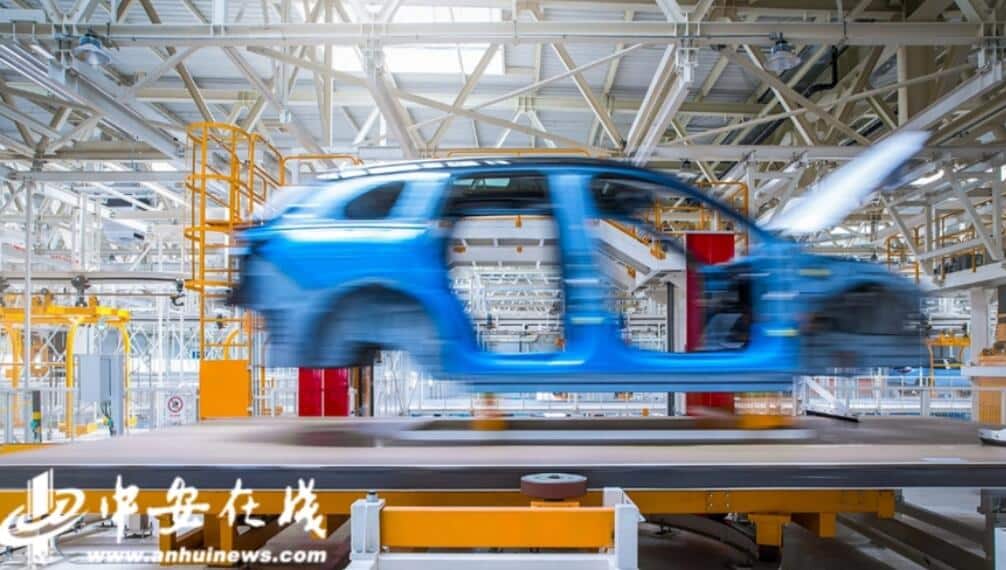The body shop at the Anhui JAC factory of Chinese EV maker Nio is automated to a 97.5% level, allowing the body shop, which is capable of rolling out 20 complete vehicles an hour, to be operated by only a dozen workers, according to local media Anhuinews.com.
The JAC Nio plant is planned to have an annual production capacity of 100,000 units, and the body shop can automate 100 percent of the main body connections with 307 robots, with an overall workshop automation rate of 97.5 percent, the report said.
"The plant is currently the newest all-aluminum body production line in China, where Nio's two models, the ES8 and ES6, are built," Yang Yi, public affairs assistant to the general manager of Nio's JAC base, said.
He said that one of the biggest highlights of the Nio ES8 is its all-aluminum body structure, with 96.4 percent aluminum usage, using a combination of aluminum alloys known as 3-series, 5-series, 6-series and 7-series.
JAC and Nio's engineers and technicians have overcome seven connection process challenges including hot melt self-tapping riveting, self-punching riveting, and aluminum spot welding, each of which provides quality assurance for the vehicle.
"We have overcome the production process problems, and the ES8 all-aluminum body weight is only 335 kilograms, half the weight of a normal car body, which comprehensively improves the power and safety performance, with more freedom," said Yang Yi.
In addition to top-notch technology to ensure Nio quality, JAC provides support in production, technology, quality and personnel.
Currently, the Hefei advanced manufacturing base has more than 2,000 JAC selected frontline technicians and more than 200 engineers from Nio in the fields of manufacturing, quality, supply management and research and development.
The cooperation between Nio and JAC is a comprehensive and in-depth one based on manufacturing," said Gu Xiangli, general manager of Nio's Hefei advanced manufacturing base. "Although the factory is just a manufacturing base, it is the presentation of Nio's new technology concept and the basis for a new business model."
The base has already implemented automatic scheduling, automatic energy management and automatic quality inspection through industrial internet, big data and cloud computing to meet the needs of customers such as customized production, making it a "model factory for smart manufacturing in Anhui," the report said.
